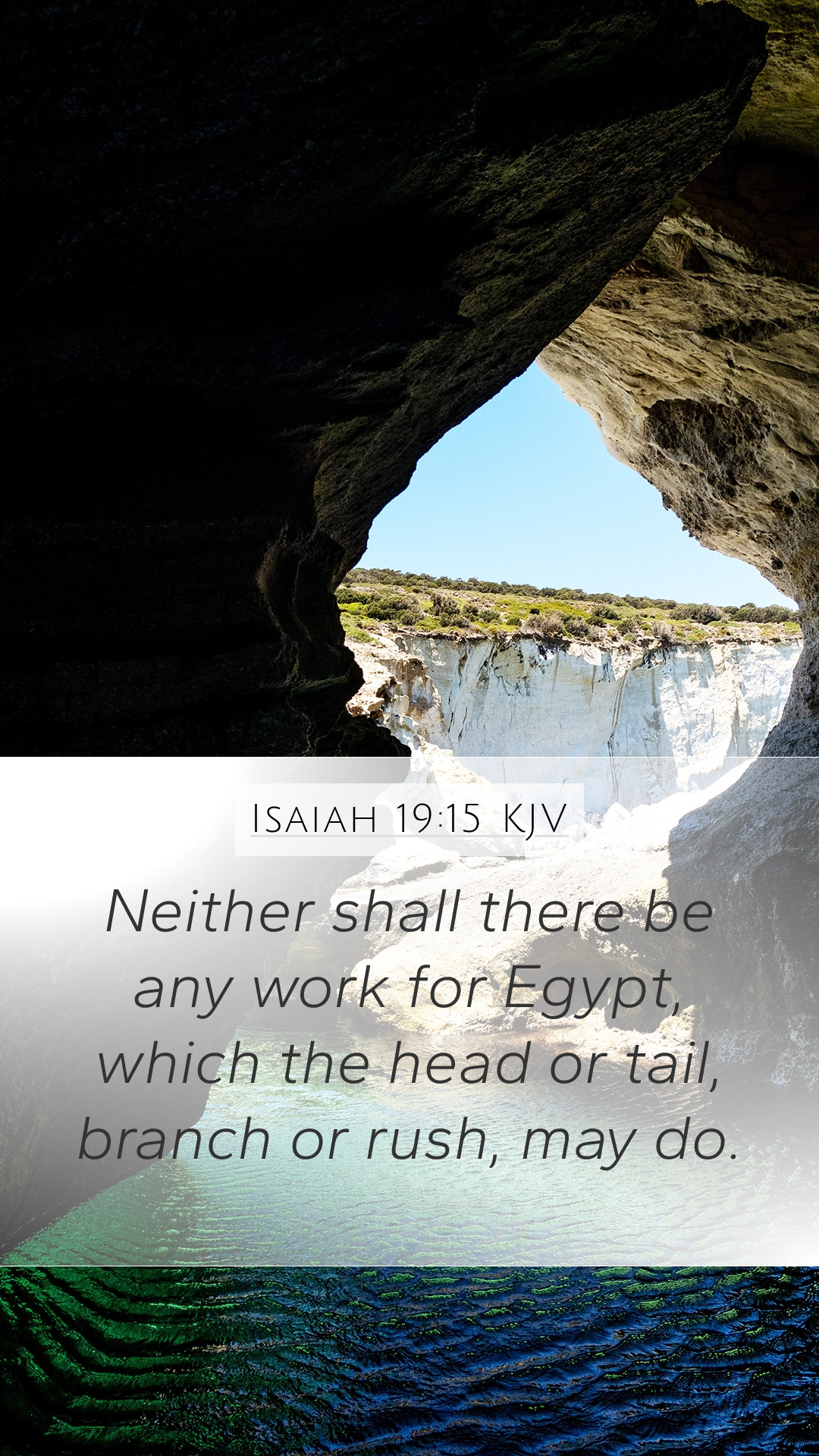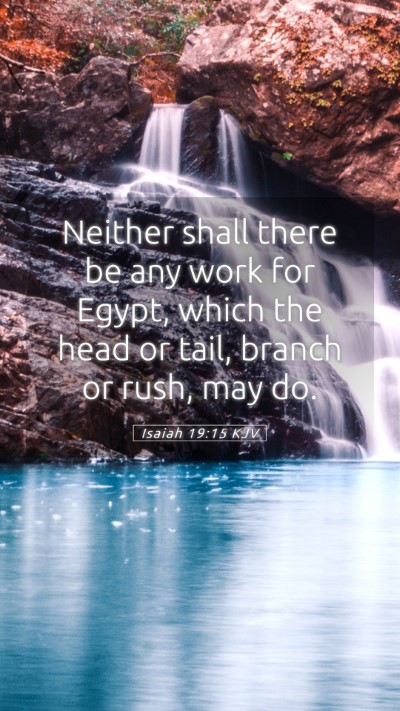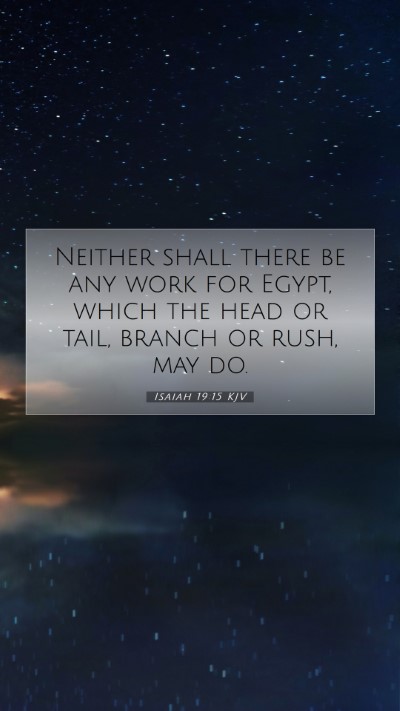Understanding Isaiah 19:15
Isaiah 19:15 states, "Neither shall there be any work for Egypt, which the head or tail, branch or rush, may do." This verse emphasizes the complete inability of Egypt to regain economic stability or productivity due to God's judgment.
Overview of the Verse
This passage appears in a prophetic context where God is condemning Egypt for their pride and reliance on their own wisdom rather than Him. The effective imagery of "head or tail, branch, or rush" signifies that no level of society—neither the great nor the small—will find work or be able to function effectively in the face of divine reproach.
Commentary Insights
-
Matthew Henry:
Henry emphasizes that God’s judgment extends to all aspects of Egyptian life. The verse illustrates that even the most noble (head) down to the least significant (tail) are affected by divine displeasure. He posits that this reflects God's sovereignty in disrupting the pride of nations.
-
Albert Barnes:
Barnes points out that the phrase "head or tail" represents all classes of people and highlights the emptiness of reliance on human power. The judgment brings desolation to Egypt’s capacity to produce and toil, underscoring the futility in opposing God's will.
-
Adam Clarke:
Clarke notes the symbolic nature of the terms used. 'Branch' and 'rush' reflect both strong and weak entities and the utter futility of their labors when set against divine judgment. He stresses that this serves as a warning to all nations about forsaking God.
Exegesis of Key Themes
This verse presents critical themes including:
- The Sovereignty of God: God’s control over nations is a central idea, showing that human efforts are rendered powerless without divine blessing.
- The Consequences of Pride: Egypt’s reliance on its strength is met with judgment, highlighting a recurring biblical theme, as seen throughout the Scriptures.
- The Universality of Judgment: The verse conveys that divine judgment is inescapable and affects every layer of society.
Application in Daily Life
In applying Isaiah 19:15, one can draw parallels to personal or societal reliance on self-sufficiency rather than faith in God. Recognizing the limitations of human effort can lead to a deeper faith and understanding of reliance upon God for all aspects of life.
Related Bible Cross References
- Proverbs 16:18 - "Pride goes before destruction, and a haughty spirit before a fall."
- Isaiah 31:1 - "Woe to those who go down to Egypt for help..."
- Jeremiah 17:5 - "Cursed is the man who trusts in man and makes flesh his strength..."
Conclusion
This verse and its interpretations remind believers of the importance of humility before God and reliance on divine providence. Whether in personal struggles or broader societal contexts, understanding the consequences of pride and self-reliance is crucial in the study of Scripture.
Further Study Resources
For deeper exploration of Isaiah 19:15 and similar passages, consider joining Bible study groups or utilizing various online Bible study resources. Engaging with insightful Bible study guides can enhance your understanding and application of Scripture.


